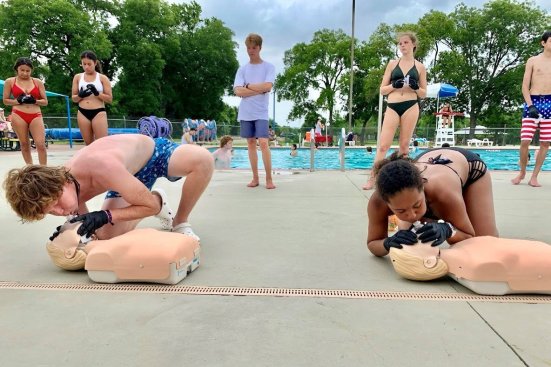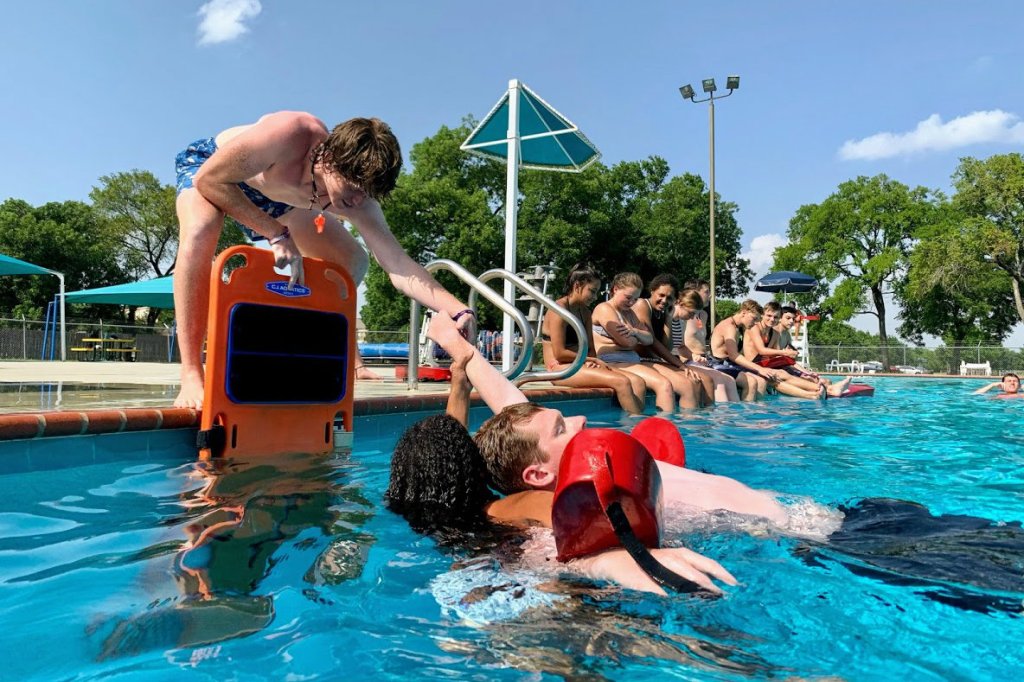Aquatics managers for The City of Round Rock (Texas) noticed a strange thing.
Few of their entry-level pool attendants were moving up the food chain to become lifeguards. Clearly they liked being part of the team. They seemed to enjoy being close to the water and working with the patrons, as they managed the gate, controlled crowds and supported the lifeguards.
The teens seemed perfectly placed to nurture an aquatics career. In the spirit of retention, the city even offers lifeguard training classes for free to the pool attendants. So why didn’t more than one in 100 pool attendants take the next step each year?
Through investigation and deduction, they came to a conclusion: The attendants didn’t feel confident in their swimming and water skills. Managers noticed that PAs would regularly begin to take the lifeguard training class, but would either exit after the first session or be forced out when they couldn’t meet the skills requirements.

“You have these kids excited to be lifeguards,” says Nichole Bohner, aquatics division manager for the City of Round Rock. “They come and try, but then they lose all their spirit about it. We wanted to take that energy and excitement and harness it.”
But the PAs didn’t want to take a standard swimming class alongside small children. “We saw there was a hole, so we decided we’re going to fill that with a training program,” Bohner says.
Tailored solution
Bohner, Aquatics Supervisor Michelle Weydert, and the team of lifeguard instructors developed a program where pool attendants could build the skills necessary to pass the prerequisites in the lifeguard training. The month-long program lead up to the week-long lifeguard training class.
PAs could share the experiences and frustrations of learning the skills at their age, bonding them closer together and creating a true sense of accomplishment. “Making the class … a social activity where enrollees can experience the process with team mates their own age has been one of the keys to the program’s success,” Bohner says.
They’re also easily integrated into the lifeguard staff. From the time they’re hired, pool attendants are invited to attend in-service trainings. To keep things digestible for these novices, PAs are only permitted during segments that address simpler skills so they aren’t overwhelmed by higher-level skills such as extractions.
“We’re strategic about what part of in-services they can come be apart of,” Bohner says.
Once they become certified lifeguards, they earn another $1 per hour — $2 per hour if they work at a waterpark. They also become the most enthusiastic advocates of an aquatics division that invested in them.
“We’ve gotten our investment back tenfold,” Bohner says.
